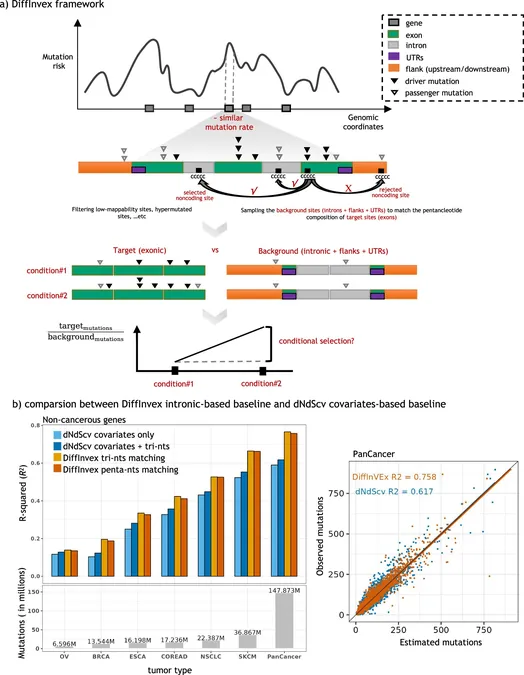
Revolutionary Framework Unveils Cancer's Sneaky Tactics to Outsmart Chemotherapy
2025-05-13
Author: Sarah
In a groundbreaking discovery, scientists have revealed how cancer cells cleverly adapt to survive chemotherapy, much like species evolve over generations. While most DNA changes in our cells are harmless, certain "driver" mutations can give cancer a distinct advantage, allowing tumors to thrive even when faced with treatment.
Researchers at IRB Barcelona have introduced an innovative computational tool called DiffInvex, designed to track the evolution of cancerous cells as they navigate the treacherous waters of chemotherapy. By examining over 11,000 human genomes from approximately 30 different tissue types, this framework unveils the escape routes cancers exploit to build resistance against treatment, pinpointing the specific genes that may trigger these survival mechanisms.
Chemotherapy's Double-Edged Sword
Though chemotherapy is a cornerstone in the fight against cancer, many tumors ultimately develop resistance and relapse. Identifying which mutations help tumors evade treatment is notoriously complex—as chemotherapy itself introduces new DNA damage. Dr. Fran Supek, the senior author of the study, emphasizes the need for clarity: "We needed a way to see through that noise and catch evolution in action."
A Data-Driven Breakthrough
DiffInvex operates by establishing a baseline mutation rate for critical coding gene regions. It compares these with mutations found in adjacent non-coding regions, eliminating uncertainties in mutation assessments. This meticulous approach has identified 11 genes that become more prevalent after exposure to particular chemotherapy treatments, revealing that well-known cancer drivers like PIK3CA, SMAD4, and STK11 play key roles in resistance.
These findings suggest that tumors often accumulate driver mutations in recognized cancer genes rather than relying on specialized mutations tailored for drug resistance.
Unveiling Evolutionary Secrets
Comparing 1,722 genomes from healthy tissues to matched tumors, researchers discovered that mutations in ARID1A, previously deemed a tumor-suppressor driver, and other cancer genes are actually favored during normal aging. This surprising insight implies that some supposed cancer drivers may be evolutionary remnants rather than the initial culprits of the disease.
Dr. Supek states, "Our work reveals that cancer's favorite strategy is not crafting specific defenses against a drug; instead, it's about enhancing its fundamental mechanisms, allowing it to withstand various attacks."
Implications for Future Cancer Treatments
The identification of these "generalist" resistance pathways paves the way for more effective treatment strategies. By combining standard chemotherapy with inhibitors targeting PIK3CA or STK11 signaling, we might delay or prevent relapse, offering renewed hope for patients. Additionally, understanding that certain mutations, like ARID1A, predate the onset of cancer could enhance early detection methods and alleviate unnecessary patient anxiety.



 Brasil (PT)
Brasil (PT)
 Canada (EN)
Canada (EN)
 Chile (ES)
Chile (ES)
 Česko (CS)
Česko (CS)
 대한민국 (KO)
대한민국 (KO)
 España (ES)
España (ES)
 France (FR)
France (FR)
 Hong Kong (EN)
Hong Kong (EN)
 Italia (IT)
Italia (IT)
 日本 (JA)
日本 (JA)
 Magyarország (HU)
Magyarország (HU)
 Norge (NO)
Norge (NO)
 Polska (PL)
Polska (PL)
 Schweiz (DE)
Schweiz (DE)
 Singapore (EN)
Singapore (EN)
 Sverige (SV)
Sverige (SV)
 Suomi (FI)
Suomi (FI)
 Türkiye (TR)
Türkiye (TR)
 الإمارات العربية المتحدة (AR)
الإمارات العربية المتحدة (AR)